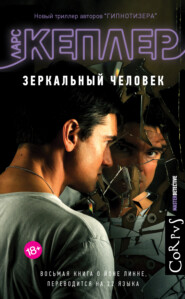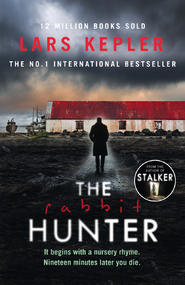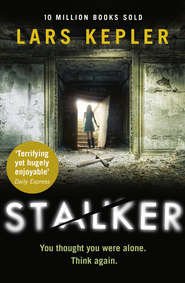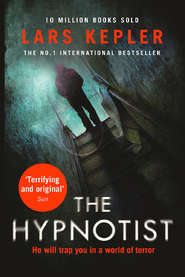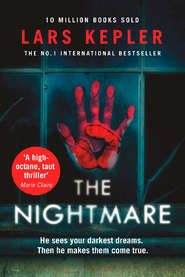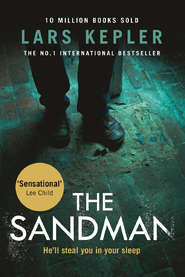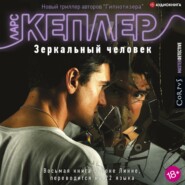По всем вопросам обращайтесь на: info@litportal.ru
(©) 2003-2024.
✖
Joona Linna Crime Series Books 1 and 2: The Hypnotist, The Nightmare
Настройки чтения
Размер шрифта
Высота строк
Поля
It is very late when Joona picks up the phone in his office, dials Disa’s number, and waits for her to answer.
“Leave me alone,” she responds, slurring slightly.
“Did I wake you up?” asks Joona.
“What do you think?” There is a short silence.
“Was the food good?”
“Yes, it was.”
“You do understand, I really had to leave.” He stops speaking; he can hear her yawning and sitting up in bed.
“Are you all right?” she asks.
Joona looks at his hands. Despite the fact that he has washed them carefully, he thinks there is a faint smell of blood on his fingers. He had knelt beside the man whose car Josef Ek had stolen, holding together the wound in the man’s stomach. The man had been fully conscious the whole time, talking excitedly and almost eagerly about his son, who had just passed his final school exams and was about to go travelling alone for the first time, visiting his grandparents in northern Turkey. The man had looked at Joona, seen his hands on his stomach, and commented with amazement that it didn’t hurt at all.
“Isn’t that strange,” he had said, gazing at Joona with the clear, shining eyes of a child.
Joona had tried to speak calmly; he explained to the man that the endorphins meant he was free of pain for the time being. His body was in deep shock and had chosen to spare the nervous system any further stress.
The man had fallen silent, then asked quietly, “Is this what it feels like to die?” He had almost tried to smile at Joona. “Doesn’t it hurt at all?”
Joona opened his mouth to reply, but at that moment the ambulance arrived, and Joona felt someone gently remove his hands from the man’s stomach and lead him to one side while the paramedics lifted the man onto a stretcher.
“Joona?” Disa asks again. “Are you all right?”
“I’m fine,” he says. He hears her moving; it sounds as if she’s drinking water.
“Would you like another chance?” she asks eventually.
“Of course I would.”
“Despite the fact that you don’t give a toss about me.”
“You know that’s not true,” he replies, suddenly aware of how unutterably weary his voice sounds.
“Sorry,” says Disa. “I’m glad you’re all right.”
They end the call.
Joona remains seated for a moment, listening to the murmuring silence in the police station; then he stands up, removes his gun from its holster, takes it apart, and slowly begins to clean and oil each part. He reassembles the pistol, goes over to the gun cupboard, and locks it away. The smell of blood has gone. Instead, his hands smell strongly of gun oil. He sits down to write a report to Petter Näslund, his immediate supervisor, explaining why he found it necessary and justified to fire his service weapon.
40
friday, december 11: evening
Erik watches as the three pizzas are baked and asks for more pepperoni for Simone. His mobile rings and he checks the display. When he doesn’t recognise the number, he slips the phone back in his pocket: probably another reporter. He can’t cope with any more questions right now. As he walks home with the large, warm boxes, he tries to plan the conversation he wants to have with Simone, explaining that he got angry because he was innocent, that he hasn’t done what she thinks he’s done, that he hasn’t let her down again, that he loves her. He stops outside the florist’s, hesitates, then goes in. There is a heavy sweetness in the air inside the shop, and the window is covered in condensation. He has just decided to buy a bunch of roses when his phone rings again. It’s Simone.
“Hello?”
“Where the hell are you?” she asks.
“On my way.”
“We’re starving.”
“Good.”
He hurries home, enters the building, and waits for the lift. Through the yellow polished window set in the door, the world outside looks magical and enchanted. He puts the boxes down on the floor, opens the door of the rubbish chute, and throws away the roses.
In the lift he has second thoughts. It’s possible she would have been pleased. It’s possible she wouldn’t have interpreted it as an attempt to bribe her, to avoid a confrontation.
He rings the bell. Benjamin opens the door and takes the pizzas from him. Erik hangs up his coat, goes to the bathroom, and washes his hands. He takes out a box containing small lemon coloured tablets, quickly removes three of them from their blister pack, swallows them without water, and returns to the kitchen.
“We went ahead and started,” says Simone.
Erik shrugs and looks at the water glasses on the table.
“When did we become a family of teetotallers?” He goes to the cabinet and gets out two wineglasses.
“Good move,” says Simone, as he opens a bottle of wine.
Erik’s phone rings. They look at each other.
“Aren’t you going to answer that?” asks Simone.
“I’m not talking to any more journalists tonight,” Erik says firmly.
“So let it ring.” She cuts a slice of pizza, takes a bite, and waits expectantly. Erik pours them both a glass of wine. Simone nods and smiles.
“Oh, I forgot,” she says suddenly. “It’s almost gone now, but I could smell cigarette smoke when I got home.”
“Do any of your friends smoke?” Erik asks, turning to Benjamin.
“No,” Benjamin replies automatically.
“What about Aida?”
Benjamin doesn’t respond. He just keeps eating. Suddenly he stops, puts down his knife and fork, and stares at the table.
“Hey, what’s the matter?” Erik asks tentatively. “Something on your mind?”
“Nothing’s on my mind, Dad.”
“You know you can tell us anything.”
“Yeah, right.”






